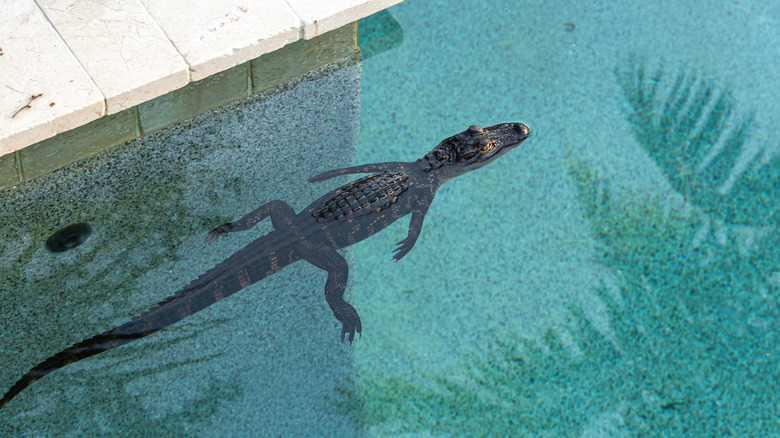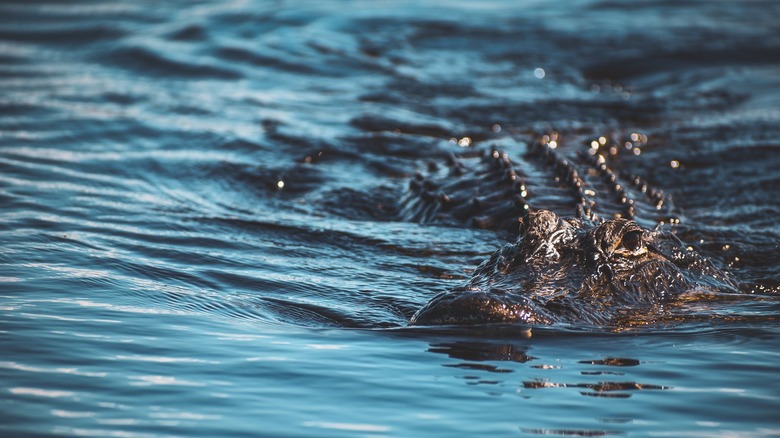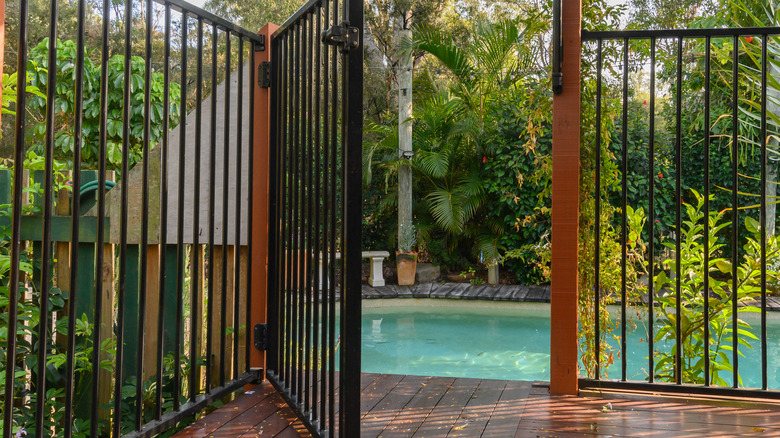What To Do If An Alligator Makes Its Way Into Your Backyard Pool
Alligators are dangerous reptiles that are common in Texas, Florida, and the southeast United States. Because alligators spend a lot of time in fresh water, they sometimes end up in pools. Finding an alligator in your pool is alarming, but you can stay safe by being careful. These reptiles generally will avoid humans and run away from them unless they feel threatened, but this doesn't mean you should attempt to wrangle an alligator out of your pool. Alligators can weigh up to 500 pounds and have a bite force of 2000 pounds per square inch, making their attacks extremely dangerous or even deadly.
No matter how small or large the alligator in your pool is, it's essential not to attempt to remove it yourself. Small alligators will still bite, and though it may not be as dire as a large alligator's bite, it can lead to infections. In some states, such as Florida, handling alligators is against the law.
Removing an alligator from your pool
If you see a gator in your pool, try calling animal control or your local nuisance alligator hotline, which should be able to find a professional to remove the animal. It's important to keep children and pets away from the backyard when an alligator is present and to maintain distance yourself. You may be able to place a long piece of wood in the shallow end of the pool to create a ramp for the alligator to climb out if it's farther away but to stay on the safe side, you should call wildlife control. No matter what, do not attempt to touch the alligator or poke it with objects to try to make it move.
Once the gator has been safely evicted from your backyard pool, the chlorine should be able to kill any germs from the animal. If you're concerned about bacteria the alligator may have left behind, you can increase the free chlorine concentration to two parts per million and keep the pH level lower than 7.5 for half an hour.
Preventing alligators from swimming in your pool
The best way to keep alligators out of your pool is by building a fence around the area that is a minimum of 5 feet tall. Surprisingly, alligators can climb on some surfaces, so a chain link fence isn't a good choice. Some alligators will dig under fences, but having your fence secured at least a couple of feet into the ground can prevent this. Alligators may also be attracted to yards with food scraps, making it important to clean up thoroughly after cooking or eating outside and to secure garbage cans.
Pool covers are not always helpful in keeping alligators out, as most are typically not strong enough to support the weight of the animal. Installing a fence or some kind of pool enclosure is rather effective for protecting your swimming spot from alligators, but it can be expensive. Whichever method you choose, creating a barrier around your yard or pool should keep alligators from disturbing your outdoor space.


